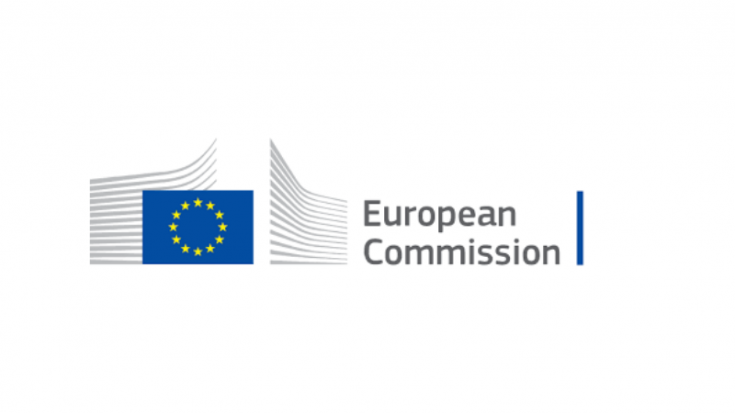Foto: Photo by RODNAE Productions from Pexels
This article is an excerpt from report "Promoting Social Considerations into Public Procurement Procedures for Social Economy Enterprises: Mapping the ecosystem in which social economy enterprises operate, including access to public procurement contracts, in Latvia", full version of which can be found in the link below.
You can read & download the whole European Commissions’ report “Promoting Social Considerations into Public Procurement Procedures for Social Economy Enterprises: Mapping the ecosystem in which social economy enterprises operate, including access to public procurement contracts, in Latvia”, which was published in 2019, here.
Authors of the report are Kristīne Gaigule-Šāvējā and the leading policy analyst at the PROVIDUS – Agnese Frīdenberga.
Legal notice: this document has been prepared for the European Commission, however it reflects the views only of the authors, and the Commission cannot be held responsible for any use which may be made of the information contained therein.
The state of play of Public Procurement
Public procurement structure at national, regional and local level
In Latvia, public procurement is regulated by the Public Procurement Law (PPL)1 ; new PPL was adopted on 15 December 20162 implementing EU Directive 2014/24/EU of 26 February 2014. In addition to the PPL there are a number of subordinated regulations adopted by the Cabinet of Ministers governing public procurement procedures and other related issues.
The purpose of the PPL is to establish the procedure for public procurement and to enable efficient use of public funds through competition for public contracts. The core principles of the PPL are: transparency of procurements, free competition and equal treatment, and effective use of public funds.
The PPL applies to public bodies and their institutions, and private entities that meet both of the following criteria: (i) are established for the specific purpose of meeting needs for the common good, not having an industrial or commercial character, and (ii) are financed for the most part by public authorities or the above private entities and/or subject to management supervision by those authorities/entities.
Public procurement system in Latvia is decentralised; public procurement procedures are organised at national level by public bodies and their institutions, and private entities meeting the above criteria, and at a local level by local municipalities, their institutions or private companies meeting the above criteria.
The exception to the above decentralised system is the mandatory requirement for state and local municipalities and their institutions to use centralised system if within a 12-month period expenditure on certain standard goods and services reaches EUR 1 000 – for state institutions – or EUR 10 000 – for local government institutions–. In this case, state and local government institutions need to choose respective standard goods or services in an ecatalogue (operates similarly to internet shop) that is available on the national e-procurement portal. To acquire rights to offer standard goods and services concerned tenderers need to participate and win the public procurement organized by the central procurement institution.
Starting from 2019 all public procurement procedures (with certain exemptions) must be organised electronically in the national e-procurement portal (EIS). EIS consists of four subsystems – e-catalogues (the management of centralised framework agreements for the purchase of standard goods), e-auctions (currently not used), e-tenders (for organising procurement procedures electronically), as well as e-certificates (to obtain information together from different state registers). Also starting from 2018, a progressive transition to procurement document submission electronically using EIS has been introduced.
Competencies and responsibilities of the authorities involved in public procurement
The Ministry of Finance (MoF) has primary responsibility for procurement policy making and drafting legislation.
The Procurement Monitoring Bureau (IUB), a State administration institution that is supervised by the MoF, is responsible for monitoring procurement compliance with legal requirements and for conflicts of interest, preparing guidelines and instructions, and drafting standardised tender and contract documents. The IUB also prepares annual reports to the Latvian government on the monitoring and functioning of public procurement. In addition, the IUB acts as a first instance review body for complaints regarding public procurement. It also carries out ex-ante controls before the start of procurement procedures in cases of projects co-financed by European Structural and Investment (ESI) Funds.
The State Regional Development Agency (VRAA) is responsible for promoting harmonised and comprehensive public purchases nationwide through the management of e-procurement and the conclusion of framework agreements for certain types of goods and services. For central government and municipality institutions, purchasing from the e-catalogues based on these framework agreements is mandatory. The Providing State Agency for Internal Affairs and the State Agency for Defence Properties of the Ministry of Defence also act as central purchasing bodies in the security and defence sectors.
The main external supervision body in public procurement is the State Audit Office (SAO). The SAO is an independent collegial supreme audit institution. It performs audits in order to ascertain whether resources of central and local public bodies are used in a lawful, economical and efficient manner, and to provide recommendations for the reduction of deficiencies. One of its tasks is to audit public procurement activities and to control the implementation of EU co-funded programmes. The SAO reports its findings to the IUB which can consequently impose fines to contracting authorities for violation of the PPL.
The Corruption Prevention and Combating Bureau (KNAB), as the leading specialised anticorruption authority of Latvia, plays a supporting role in the public procurement system. Its aim is to fight corruption in a coordinated and comprehensive way through prevention, investigation and education. In particular, it detects corruption in public procurement procedures in collaboration with the IUB and is responsible for prosecuting cases of corruption and other criminal offences in public procurement cases.
Ultimately, there are judicial review procedures applicable to public procurement complaints. Aggrieved parties may request the administrative court to annul, terminate, amend or reduce the contractual terms of a tender procedure, even if it is already executed. An appeal to the administrative court does not suspend the public procurement processes, but may result in the annulment of the process and/or the award of damages.
Use of public procurement
The PPL regulates procurement procedures both above and below EC thresholds.
Latvia has two levels of national thresholds below the EU thresholds. First, direct procurement is allowed for small-value contracts of less than EUR 10 000 for supplies and services, and EUR 20 000 for works. For these procurements there are no mandatory procedures to be followed by contracting authorities, save for observing the main principles of public procurement. Complaints regarding these procedures are reviewed by administrative courts – the IUB does not act as a first instance review body.
Second, simplified procedures can be used for contracts between EUR 10 000 and EUR 42 000 for supplies and services, and EUR 20 000 and EUR 170 000 for works. Complaints regarding the “simplified procedures” (within limits of the above thresholds) are reviewed according to the same procedure as regarding the procedures above the thresholds – IUB acts as a first instance review body. “Simplified procedures” are substantially simplified in comparison with the basic procurement procedures, so that the administrative resources and time of the contracting authority necessary for the performance of the procurement are proportionate with the contract price. The contracting authority is required to form a procurement commission, draft procedure regulation, announce procurement and evaluate tenders, and take a decision regarding the winning tender.
During evaluation, the contracting authority has to take into account provisions for exclusion, the requirements in relation to the general conditions of the supplier, the capacity of a tenderer to perform professional activities, the economic and financial situation, as well as the technical and professional abilities of the tenderer.
Contracting authorities have to publish information once a year regarding planned “simplified procurements” that includes all the necessary information, including planned subject-matter of the contract, CPV code, the planned year and quarter or month of the procurement notice, etc. Term of submission of a tender must be at least 10 days from when the date notice about procurement has been published.
Above this second level, the same procedures and rules apply as above the EU thresholds, except for shorter time limits.”
[..]
You can read & download the whole European Commissions’ report “Promoting Social Considerations into Public Procurement Procedures for Social Economy Enterprises: Mapping the ecosystem in which social economy enterprises operate, including access to public procurement contracts, in Latvia”, which was published in 2019, here.
Legal notice: this document has been prepared for the European Commission, however it reflects the views only of the authors, and the Commission cannot be held responsible for any use which may be made of the information contained therein.

